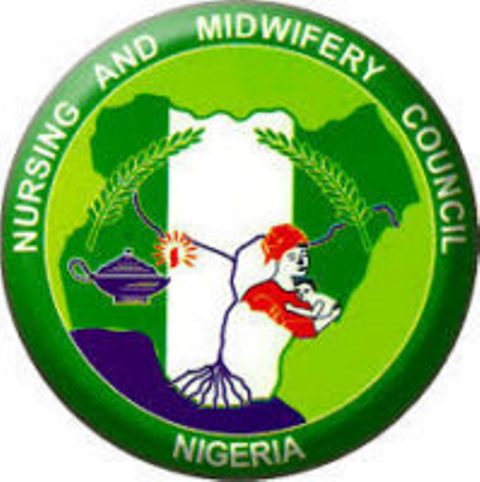How To Renew Your Nursing And Midwifery Council Of Nigeria License (2026)
No matter the school of nursing you attended, you can not practice as a nurse or a midwife if you don’t have the license to back your claim.
The above goes in line with Decree 54 of 1988 which stipulates that “No Nurse shall be allowed to practice or continue to practice in any year except such a Nurse has paid Licensing fees as prescribed by the Council”.

The steps and process of nurses license renewal is what this post seeks to explain.
How To Renew Your Nursing And Midwifery Council Of Nigeria License
Step 1: Make Payment Via Remita Platform
It would cost you N10,500 to renew your license every three years. You are to make payment using the remita platform. There is also an additional fine of N5,250 for defaulters who defaults any year in renewing your license.
Step 2: Get All Relevant Documents Ready
The following documents are important things you need when applying to renew your license:
- Your expired license
- Your completed Licensing form.
- Two (2) recent identical coloured passport photographs in white background.
- Photocopies of certificates of registration.
- Photocopies of certificate of attendance for Mandatory Continuing Professional Development Programme (MCPDP).
Original evidence of payment of N10,500 for renewal and penalty of N5,250 for each year of default on Nursing and Midwifery Council of Nigeria’s platform through REMITA (TSA).
Step 3: Submit Documents At Zonal Office
If you have the above documents ready, go and submit these documents to the zonal office of the council nearest to you. After its being verified, you have now renewed your Nursing and Midwifery Council license successfully.
More Information about the Nursing and Midwifery Council of Nigeria
The Nursing and Midwifery Council is the body responsible for the training and licencing of nurses and midwives in Nigeria.
History
Due to the various wars during the colonial era, nursing was an esteemed lucrative profession recognized in the country. No wonder, nurses and midwives were respected in any community they found themselves.
However, to maintain the nursing education and professional practice which soared in excellence with other countries of the world, the Midwives Ordinance in 1930 was set up primarily to promulgate Midwifery Education and Practice in the country.
It was not until 1947 that the Nursing Council of Nigeria was established by the Registration of Nurses Ordinance. The objective of this council was strictly a regulating function. That is, to see to the control, education and practice of Nursing in Nigeria.
Overtime, the growth and expansion of the Council has seen it rise as the major authority in regulating nursing education and practice for all grades and cadres of nurses and midwives scattered round the 36 states in Nigeria.
Today, the council on behalf of the Federal government is seen as the only legal, administrative, corporate and statutory body charged with specific functions to ensure the delivery of safe and effective Nursing and Midwifery care to the public at large.
The headquarters of the Council is located in Abuja with its Zonal Offices in Sokoto, Kaduna, Bauchi, Enugu, PortHarcourt and Lagos respectively.
Furthermore, the Council is headed by a Secretary General/Registrar with other professionals and non-professional staff assisting in other areas. It is a category B parastatal of the Federal Ministry of Health.
Apart from its close relationship with the Federal Ministry of Health and other health parastatals, the Council also works closely with the following councils: the Medical and Dental Council of Nigeria and Pharmacist Council of Nigeria.
This collaboration helps the government fulfill its objectives in the health-care sector.
Also the Council also partners with international non-governmental parastatals like the WHO, UNICEF, USAID, British Council, International Council of Nurses, International Council for Midwives, Institute of Human Virology, Nigeria (IHVN), International Center for AIDS Care and Treatment Programs (ICAP), West African Health Organization (WAHO), IPAS, Netherlands Leprosy Relief Organisation, JSI/MMIS-Nigeria, Family Health International, GHAIN, PATHS, NACA, Pathfinder International and Society For Family Heath.
The relationship with these international health bodies will create and enable the development and implementation of various health programmes, projects, workshops and seminars to help improve the standards of Nursing and Midwifery Education and Practice in the country.
Functions
The functions of the Nursing and Midwifery Council of Nigeria include:
- Accreditation of all training institutions, facilities and clinical practice areas that have been designated for the education of all categories of Nurses and Midwives in Nigeria.
- To conduct and promote research in the vital areas of Nursing and Midwifery.
- To conduct professional examinations for all categories of Nurses and Midwives in Nigeria.
- To conduct registration interviews for Nurses and Midwives trained outside Nigeria (abroad) intending to practice in the country.
- To establishing cooperation with recognized bodies who are interested in conducting new schemes for Basic and Post Basic Education of Nurses and Midwives such as the NUC and the WHO.
- Determining and maintaining the right standard of knowledge and competencies in Nursing and Midwifery Education and Practice in Nigeria.
- To develop and review periodically, the various curricula utilized for the education of all categories of Nurses and Midwives in the country.
- To keep record by maintaining a valid register of all persons qualified to practice the discipline of Nursing and Midwifery in Nigeria.
- To issue, update and renew professional practicing licenses every three years to all cadres of qualified Nurses and Midwives.
- To issue professional certificates to all cadres of Nurses and Midwives at the end of their training.
- To maintain the required discipline of members within the Nursing and Midwifery profession in Nigeria via the Nurses and Midwives Tribunal.
- To organize and conduct mandatory continuing professional and educational development programmes for all cadres of Nurses and Midwives.
- To prosecute illegal training Institutions as it deems fit.
- To revoke or restore Professional Certificates to its members where necessary.